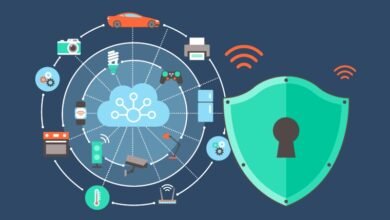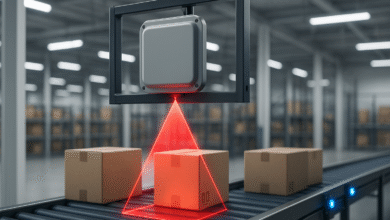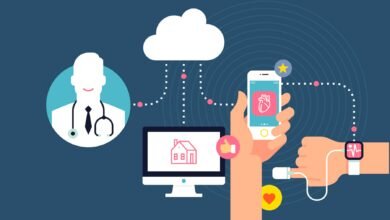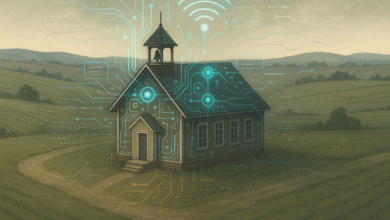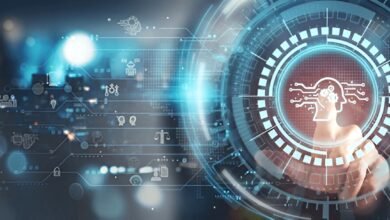How IoT is Powering Germany’s Digital Transformation
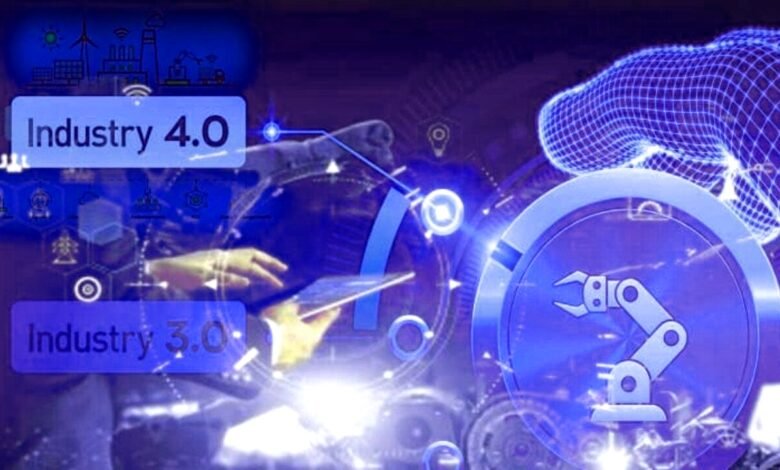
Germany, known for its engineering prowess and industrial strength, is leading the charge in digital transformation. At the heart of this revolution is the Internet of Things (IoT), a technology that connects devices, machines, and systems to optimize efficiency, productivity, and innovation. From smart factories to intelligent transportation systems, IoT is powering Germany’s digital transformation in unprecedented ways.
This article explores how IoT is reshaping industries, enhancing smart cities, and driving sustainable growth in Germany. We’ll dive into key sectors where IoT is making an impact, the challenges faced, and the future of IoT in Germany’s digital economy.
1. The Role of IoT in Germany’s Industry 4.0
What is Industry 4.0?
Industry 4.0 represents the fourth industrial revolution, where cyber-physical systems, IoT, and cloud computing merge to create smart factories. Germany, being a manufacturing powerhouse, has embraced IoT to enhance automation, predictive maintenance, and real-time data analytics.
How IoT is Transforming Manufacturing
-
Predictive Maintenance: IoT sensors monitor machinery health, reducing downtime by predicting failures before they occur.
-
Smart Supply Chains: Connected logistics ensure seamless tracking of goods, optimizing inventory management.
-
Automated Production Lines: IoT-enabled robots and machines communicate with each other, improving precision and efficiency.
Companies like Siemens, Bosch, and BMW are leveraging IoT to maintain Germany’s competitive edge in global manufacturing.
2. IoT-Driven Smart Cities in Germany
Enhancing Urban Living with IoT
Germany is investing heavily in smart city initiatives, where IoT plays a pivotal role in improving infrastructure, energy efficiency, and public services.
Key Applications:
-
Intelligent Traffic Management: IoT sensors optimize traffic flow, reducing congestion in cities like Berlin and Munich.
-
Smart Energy Grids: IoT helps balance energy demand and supply, integrating renewable sources efficiently.
-
Waste Management: Smart bins with IoT sensors notify authorities when they need emptying, reducing operational costs.
Cities such as Hamburg and Cologne are pioneering IoT solutions to create sustainable, livable urban environments.
3. IoT in Germany’s Energy Sector
Transitioning to Renewable Energy with IoT
Germany’s Energiewende (Energy Transition) policy aims to shift from fossil fuels to renewables. IoT is crucial in managing this transition by enabling smart grids, energy storage optimization, and real-time consumption monitoring.
IoT Applications in Energy:
-
Smart Meters: Provide real-time energy usage data, helping consumers and providers optimize electricity consumption.
-
Wind and Solar Farm Monitoring: IoT sensors track performance and predict maintenance needs for renewable energy plants.
-
Demand Response Systems: Automatically adjust energy usage during peak hours to prevent grid overload.
Companies like E.ON and RWE are using IoT to build a smarter, greener energy ecosystem.
4. IoT in German Healthcare
Revolutionizing Patient Care with Connected Devices
Germany’s healthcare sector is adopting IoT to improve patient outcomes, streamline operations, and reduce costs.
Key IoT Innovations:
-
Remote Patient Monitoring: Wearable IoT devices track vital signs, allowing doctors to monitor chronic conditions remotely.
-
Smart Hospitals: IoT-enabled equipment automates workflows, reducing human error and improving efficiency.
-
Pharmaceutical Tracking: IoT ensures the integrity of medicines by monitoring storage conditions during transit.
Hospitals and research centers across Germany are integrating IoT to enhance precision medicine and telemedicine services.
5. IoT in Transportation and Logistics
Building Germany’s Smart Mobility Infrastructure
Germany’s transportation sector is undergoing a digital overhaul, with IoT enabling autonomous vehicles, smart railways, and efficient freight logistics.
IoT Use Cases in Transport:
-
Connected Cars: Vehicles communicate with traffic systems to optimize routes and reduce accidents.
-
Autonomous Public Transport: Cities are testing IoT-powered buses and trams for safer, driverless commuting.
-
Smart Ports: Hamburg’s port uses IoT for real-time cargo tracking and automated unloading processes.
With companies like Volkswagen and Deutsche Bahn investing in IoT, Germany is setting benchmarks in smart mobility solutions.
6. Challenges in IoT Adoption
Barriers to Germany’s IoT Growth
While IoT is transforming Germany, several challenges hinder its full potential:
-
Data Security & Privacy: IoT devices are vulnerable to cyberattacks, requiring stronger cybersecurity measures.
-
High Implementation Costs: SMEs struggle with the initial investment needed for IoT infrastructure.
-
Interoperability Issues: Lack of standardization across IoT platforms creates integration difficulties.
The German government and private sector are collaborating to address these challenges through regulatory frameworks and R&D investments.
7. The Future of IoT in Germany
What Lies Ahead for IoT-Driven Digital Transformation?
Germany’s IoT landscape is set to expand further with advancements in 5G, AI, and edge computing. Key trends include:
-
AI-Powered IoT Analytics: Smarter data processing for real-time decision-making.
-
Expansion of 5G Networks: Faster, more reliable connectivity for IoT devices.
-
Sustainable IoT Solutions: Green IoT initiatives to reduce carbon footprints.
With continuous innovation, IoT will remain a cornerstone of Germany’s digital transformation, driving economic growth and global competitiveness.
Conclusion
IoT is powering Germany’s digital transformation across industries—manufacturing, healthcare, energy, and transportation. By integrating IoT into smart cities and Industry 4.0, Germany is reinforcing its position as a global leader in technology and innovation.
While challenges like cybersecurity and costs persist, the future of IoT in Germany looks promising, with advancements in AI, 5G, and sustainability paving the way. As businesses and policymakers continue to invest in IoT, Germany’s digital economy will thrive, setting an example for the rest of the world.
Final Thoughts
Germany’s embrace of IoT showcases how technology can revolutionize economies and improve quality of life. Whether it’s through smart factories, connected healthcare, or green energy solutions, IoT is undeniably shaping the future of Germany’s digital landscape.



